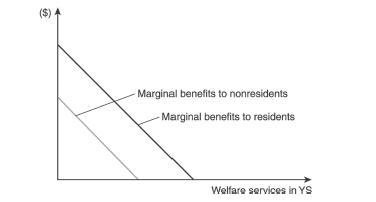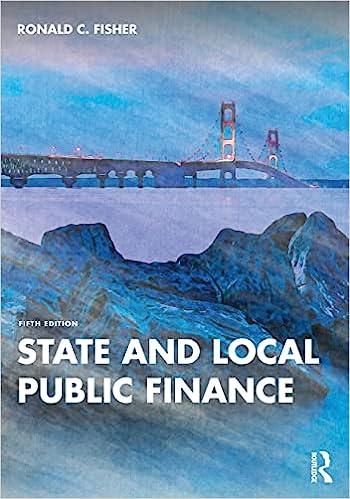Suppose taxpayers who finance welfare care about both poor residents of their states and the poor who
Question:
Suppose taxpayers who finance welfare care about both poor residents of their states and the poor who live in other states, but to different degrees. Thus, when the residents of Your State select the level of welfare benefits, all residents of YS (both the poor and non- poor)benefit, but residents of other states also benefit because the poor in YS are being helped.(For instance, because of the assistance in YS, poor residents may be less likely to migrate to other states.) Both the marginal benefits to all residents from welfare payments in YS and the marginal benefits to residents of other states are shown in the following figure:

(a) If your state must pay all welfare costs (the marginal cost of a dollar of benefit is $1.00), what level of service is selected?
(b) What level of welfare service in YS is efficient from a national viewpoint, taking into account the benefits to residents of other states?
(c) How might the federal government use intergovernmental grants to induce YS to select the amount of welfare benefits that is efficient from a national perspective?
(d) If the federal government used grants for this purpose, under what conditions would it make sense for the federal grant share to be greater for low-income states than for high- income states? Explain your answer.
Step by Step Answer:






